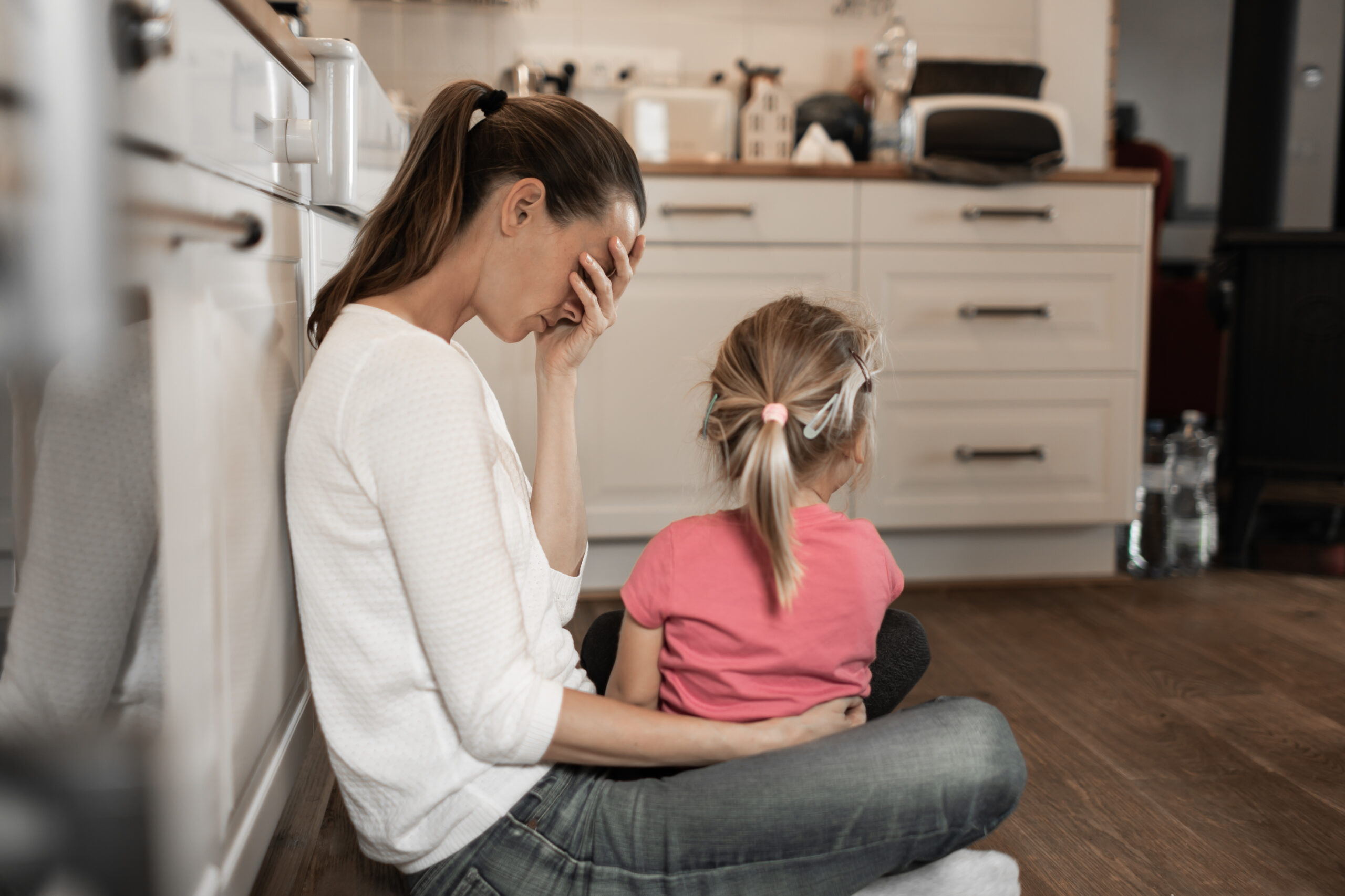I walked my son down the sidewalk, his little hand in mine. When a couple kids ran past us kicking up woodchips on the school’s playground, his grip tightened. “Mom, I don’t want to go,” he said. I stopped and knelt in front of him. “I know you’re scared,” I said, looking into his eyes. “This is a big change for you.” He nodded. When we reached the school doors, he released my hand to stand in line behind another child. He looked so small. When he flashed me a toothless grin, I gave him a thumbs-up. I’m grateful he couldn’t hear the banging in my chest.
Change can be hard. Many times, it’s unwanted. But helping kids with change can make their lives feel less scary. Here are 5 ways to start working with your kids to handle change now.
1. Empathize.
Before we moved, I said to my kids, “We’ll finally have a yard!” But my little one wasn’t fooled. “Will I ever see my friends again?” she asked. She had three besties from ballet class, and I knew she couldn’t fathom saying goodbye to them. “I don’t know,” I said, honestly. I promised her we’d call those girls and stay in touch. “I know you’re going to miss them,” I said.
A lot of times, kids don’t have a say when things change. Give your kids time to express any fears they may have and don’t minimize their feelings by saying that “it’ll be fine.” Counselor Teresa Smith advises parents to take what their children are saying seriously. “Seek to hear and understand as much as possible,” she says. Empathizing goes a long way in helping kids with change.
2. Provide enough notice about a big change coming up.
Before my friend had her second child, she read books to her daughter to prepare her for a new baby sister. Another mom I know pulled her daughter Olivia out of school midyear, but because Olivia knew it was coming, she told my daughter. It gave me a chance to support my daughter and prepare for Olivia’s departure.
Who likes last minute changes? Some people are good with spontaneous shake-ups, but it’s easier for most people—kids included—to have time to process an upcoming change. There may be lots of emotions to sort through and with your help, kids will have an easier time when the change finally arrives. Sometimes we don’t want to give our kids advance knowledge of a big change because we think we’ll have to deal with their worrying or complaints for a longer period of time. But if we don’t provide enough notice, and only tell them a couple hours beforehand, we’re not giving them time to process all their feelings. They may continue processing long after the change takes place and this could leave them feeling more confused and sad.
3. Give kids choices.
“What should we pack for Nana’s house?” I asked my kids. We needed to stay with my in-laws for a few weeks before moving into our new house. Most of our things would go in boxes, but some special items could come in the car with us.
They may not be able to pick out your new house or when you’re going to move, but offering your child some smaller choices will give him some control. What color does he want his bedroom to be? What does he want to wear on the first day at his new school?
4. Provide enough stability elsewhere.
My daughter’s teacher left on maternity leave halfway through the year. We knew it was coming, but it was still hard on her. The sub didn’t have the same teaching style or command of the classroom. At home, we kept things running as usual. Same rules, same bedtime routine. Our daughter knew what to expect with us, even if things felt uncertain at school.
Change can throw kids for a loop. They may feel untethered like a balloon. It’s our job when helping kids with change to keep them grounded and provide a sense of normalcy as the adjustments take place. It gives kids a sense of security knowing that even when things change around them, you and your love are constant.
It’s our job when helping kids with change to keep them grounded and provide a sense of normalcy as the adjustments take place. Click To Tweet5. Keep talking.
“He seemed fine,” my friend told me about her 12-year-old son when she and her husband announced their plans to separate. “Took it maturely.” But a month after her husband moved out, their son lost it. He got suspended for fighting in the lunchroom. “It was over something stupid too. Like who got the last milk carton.” My friend shook her head, dismayed. “He hasn’t been OK—we just didn’t realize it.”
Helping kids with change, especially when changes are life-altering, starts with good communication. Keep checking in. Try talking at bedtime when his guard’s down, or while he’s in the back seat of the car. Sitting on the bench all season because of his broken wrist or getting used to a new school may not seem like big deals to you, but they’re big changes for a kid who didn’t ask for the change in the first place. Knowing you’re invested will go a long way to make the changes in his life feel less stressful.
How are you helping kids with change when you know one will disrupt your family’s life for a bit?










